NNA – Maronite Patriarch, Cardinal Mar Bechara Boutros al-Rahi, presided over Sunday Mass at “Our Lady’s Church” in the patriarchal edifice in Bkirki. In his sermon, Patriarch Rahi urged the Lebanese state to restore legitimacy to its free decision and the unity of its military authority, and to withdraw from the game of destructive axes […]
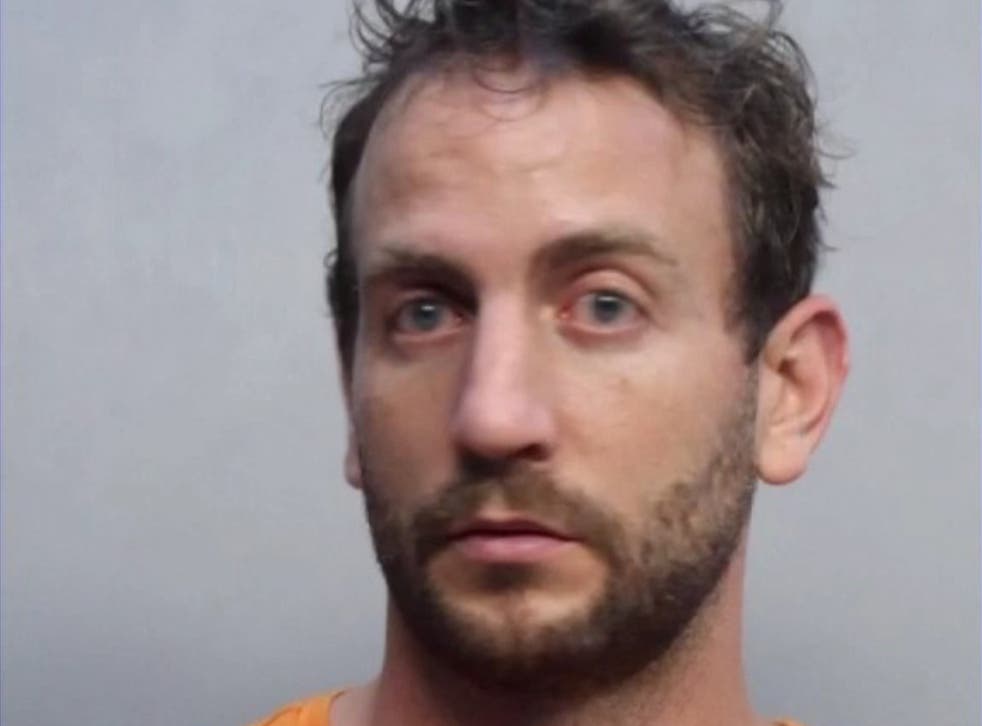
by arabnews.com — LONDON: In late 2019, over 50 women came forward and shared their painful testimonies of encounters with Lebanese serial assaulter Marwan Habib. “He followed me into the showers after my boxing lessons and tried to corner me in one of the shower stalls. I pushed him out and filed a complaint,” read one. “I saw him during the thawra (protests) and he tried to convince me to go with him for lunch and stuff when I told him I’m ONLY 15,” another revealed. “I’m a minor. He said he likes young girls. I ran away from him and he kept following me until I threatened to call the police. When I did call them, they did absolutely nothing.” Despite the growing number of allegations, Habib remained free and continued to harass women across the capital.
Last Friday, Habib was jailed without bond after he was arrested for sexually assaulting a woman at a hotel in Miami. Habib met his victim at a club, but later followed her to her hotel and then convinced the clerk to give him a key to her room. Police told reporters that Habib had entered the victim’s room at Hotel Victor in South Beach on Friday night and then sexually assaulted her. The arrest report stated: “Criminal Investigations Division has received various complaints about different females reporting the defendant’s odd and concerning behavior. The defendant is known to pursue females in order to have sex or date them even after they advised them to stop doing so on multiple occasions.” While the Lebanese rejoiced at the news of his arrest, it was long overdue as multiple lawsuits filed against him had fallen on deaf ears.
Princess Basmah has been released after spending three years in detention by dw.com — AFP and Reuters — Saudi authorities have released a princess and her daughter who had been detained without charge for nearly three years, her legal adviser said on Saturday. Princess Basmah Bint Saud bin Abdulaziz al Saud, 57, is a businesswoman, […]
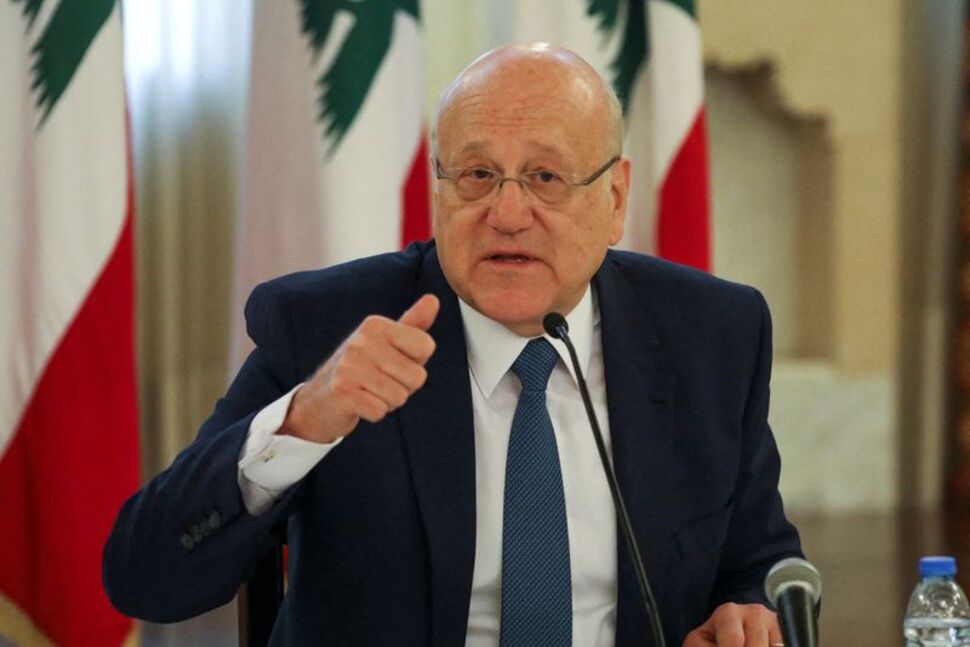
By Najia Houssari — arabnews.com — BEIRUT: The dispute between Lebanese President Michel Aoun and Parliament Speaker Nabih Berri has disappointed those who hoped their row would subside and that Cabinet would convene, as sources close to the prime minister said that this year’s budget was ready and the government should take action. Hezbollah and its ally the Amal Movement have been refusing to allow the Cabinet to meet since Oct. 12, demanding the removal of a judge who is investigating 2020’s devastating explosion at Beirut Port. With Parliament expected to convene in an extraordinary session starting Monday, politicians appeared to mourn the Aoun-Berri settlement, which they felt was “stillborn.” MP Ali Darwish said that Prime Minister Najib Mikati was counting “on the sense of patriotism of those boycotting Cabinet sessions to attend.” Darwish is a member of the Independent Center bloc headed by Mikati. “The discussion of the budget is a constitutional right that cannot be avoided,” Darwish told Arab News. When Mikati received the budget from the Ministry of Finance, he would call for a Cabinet session to study it and refer it to Parliament, the lawmaker said. “I think that attending the Cabinet session is necessary. Discussing the budget is a crucial constitutional duty to meet people’s needs and approve spending policy,” he added.
Sources close to Mikati said that the budget was ready and the government should take action, which necessitates a Cabinet session and opening an extraordinary session of Parliament since legislation is required to keep pace with the work of the government. The country’s election law has entered into force, and the Ministry of Interior has decided that elections will be held mid-May. The Lebanese people and the international community are counting on these elections to bring about change in the ruling authority. That Aoun requested to include an item related to the election law on the agenda of parliament’s extraordinary session has raised questions about the possibility of disrupting these elections under the pretext of making new amendments. “The election law is now in effect and any amendment cannot be related to the date of holding the elections,” said Darwish.
NNA – Former Prime Minister, Saad Hariri, contacted by phone President of the Republic, General Michel Aoun, after the call received by the Center House from the presidential palace regarding President Aoun’s invitation to a national dialogue conference. In this connection, Hariri apologized for not partaking in the national dialogue session, “because any dialogue at […]
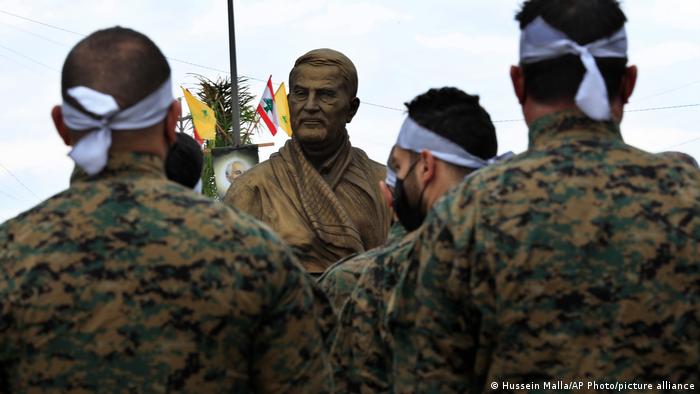
by dw.com — Jennifer Holleis, Razan Salman — Crises-hit Lebanon has started this year with a tough first week. This Tuesday, the exchange rate hit another all-time low with 30,000 Lebanese pounds worth just $1 on the black market. Officially, the pound is pegged to the dollar, but the fixed rate has effectively become meaningless in the country’s protracted economic crisis. Also, a heated spat between Hezbollah’s Secretary-General Hassan Nasrallah and Saudi King Salman bin Abdul-Aziz Al Saud Salman has once more ignited diplomatic tensions between Lebanon and its ally Saudi Arabia. On Monday, Nasrallah had called King Salman a terrorist in a televised speech marking the occasion of the second anniversary of the assassination of the Iranian Commander Qassem Suleimani. Prior to this, King Salman had called on the Lebanese to “to end the terrorist Hezbollah control” of Lebanon. Lebanon’s Prime Minister Najib Mikati was quick to issue a statement, which not only sought to limit the diplomatic damage, but also showed the growing impatience with the Iran-backed militia and political heavyweight Hezbollah.
War in Yemen divides
“Nasrallah’s comments do neither represent the Lebanese government nor the majority of Lebanese,” Mikati said. He added that “while we call for Hezbollah to be part of Lebanon’s diverse affiliation, its leadership is in opposition to this trend with positions that first harm the Lebanese and secondly Lebanon’s relations with its brother. For God’s sake, have mercy on Lebanon and the Lebanese, and stop the hateful sectarian and political rhetoric.” Mikati is not the only one who has started to increase pressure on the powerful Shiite Hezbollah. Also, President Michel Aoun has become more open in his discomfort. Last week, he criticized Hezbollah for harming relations with Gulf countries by “interfering in matters that do not concern us,” referring to Saudi and Hezbollah being on opposite sides in the war in Yemen — a constant bone of contention between the two sides. Aoun’s warning is all the more significant as his Maronite Christian Party, the Free Patriotic Movement (FPM), is part of the “March 8 Alliance” with Hezbollah. Furthermore, the Lebanese are increasingly worried about Hezbollah’s rhetoric regarding the Gulf states.
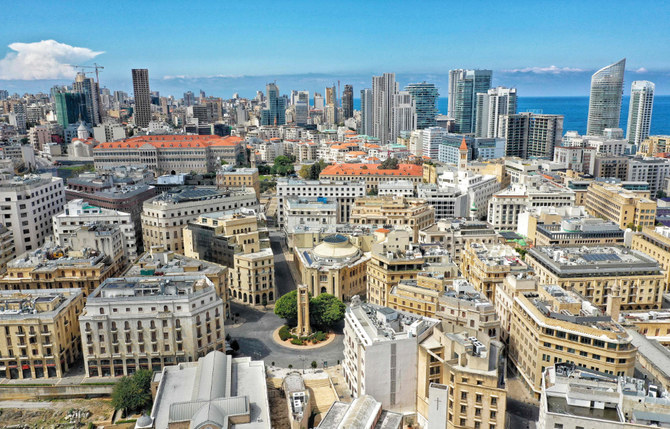
By NAJIA HOUSSARI — arabnews.com — BEIRUT: General Labor Union President Bechara Al-Asmar has warned against “a certain catastrophe, since hospitalization is now accessible to the wealthy only.” At a press conference on Friday, he commented on the multitude of crises facing the Lebanese, including “the ongoing madness in the dollar exchange rate, insane increases in fuel prices, electricity bill, the removal of medicine subsidies and the loss of the depositors’ savings as a result of bank circulations — viewed as organized robbery.” He warned that “the draft budget included a provision for raising the customs dollar, which would raise the prices of goods by 30 percent, and raise all taxes and duties.” He added: “This is unacceptable because it entails the removal of subsidies on everything in exchange for nothing, which is surrendering to the IMF conditions without any supervision.”
The fresh warning came as the ruling elite attempted to resolve its many conflicts that are blocking political and administrative progress. President Michel Aoun has signed a decree calling on parliament to hold an extraordinary session starting from Monday and ending on March 21. This will restore the parliamentary immunity of the ministers charged for the crime of the Beirut port blast, including current MPs, one of whom had an arrest warrant issued for him in absentia and that has not yet been executed. The parliamentary session sets the stage for the transfer of power from a judicial investigator to a parliamentary body for the prosecution of ministers and deputies allegedly to blame for the explosion. Lawyer and activist Hassan Bazzi said that “the key parties to the settlements are Parliament Speaker Nabih Berri, Prime Minister Najib Mikati and President Michel Aoun.” This follows the intense political discord between Aoun and Berri that reached its peak last week.
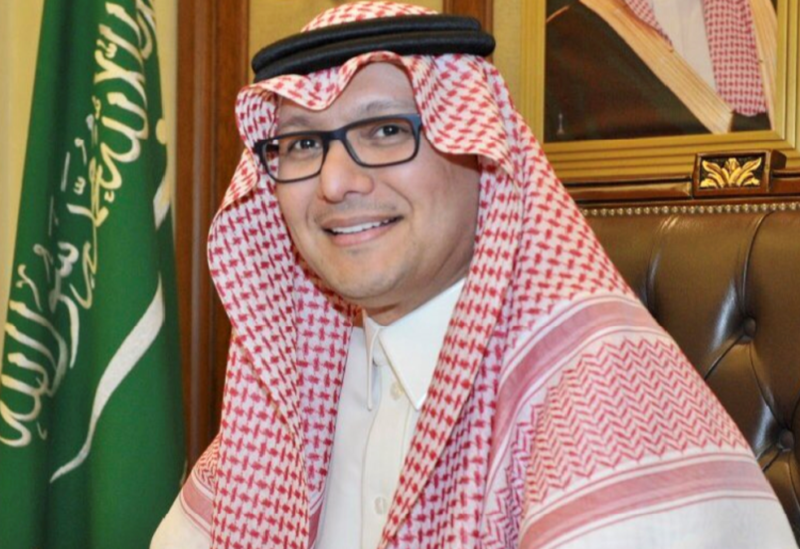
by arabnews.com — LONDON: Saudi Arabia’s ambassador to Lebanon said relations with Lebanon were too deep to be affected by “irresponsible and absurd statements.” Waleed Bukhari said the Lebanese Iran-backed Hezbollah’s terrorist activities and regional military behavior threatened Arab national security in a statement to AFP. His comments came two days after Lebanese Prime Minister Najib Mikati said criticism of the Kingdom by the leader of the Hezbollah group did not serve the national interest or represent the country’s official stance.
The comments also followed a rift in relations between Lebanon and Gulf countries after a number of countries withdrew their ambassadors from Beirut in October and November in protest over statements made by then-information minister George Kordahi that were critical of the Kingdom’s role in the Yemen war. “Riyadh hopes that the political parties will give priority to the supreme interest of Lebanon… and end Hezbollah’s terrorist hegemony over every aspect of the state,” Bukhari said. He added that Hezbollah’s terrorist insistence to impose its control disrupts peace in Lebanon and called on the Lebanese government to stop its activities that are affecting the Kingdom and the Gulf region, Al Arabiya reported.

سجعان قزي
@AzziSejean
تعودُ إليَّ صورةُ يَسوع على الصليبِ وقد عَطِش إلى نُقطةِ ماءٍ، فتَقدّمَ جُنديٌّ يهوديٌّ “وأخَذَ إسْفَنجةً ومَلأها خَلًّا وجَعلَها على قَصَبةٍ وسَقاه” ليزيدَ مرارةَ عذاباتِه. المسؤولون ـــ وأيُّ مسؤولين! ـــ عِوضَ أن يُهْدوا الشعبَ اللبنانيَّ المعذَّبَ والعَطشانَ نُقطةَ ماءٍ في مَطلَعِ السنةِ الجديدةِ، قَصَفوه بوابلِ الإطلالاتِ البُكائيّةِ، والخِطاباتِ العَدائيّةِ، والمؤتمراتِ المتأخِّرةِ، والتصاريحِ الـمُلفَّقةِ، والسِجالاتِ المضَلِّلة غيرَ عابئين بمعاناتِه. بِـمَ نَصِفُ هذا التصَرّفَ؟ قِلّةُ مسؤوليّةٍ؟ قِلَّةُ وطنيّةٍ؟ قِلّةُ حياءٍ؟ قِلّةُ ذوقٍ؟ قِلّةُ إحْساسٍ؟ قِلّةُ مبالاةٍ؟ قِلّةُ شَفَقةٍ؟ هذا فائضٌ من كلِّ ذلك. أهلُ الفيلقِ لا يَعتبرُون اللبنانيّين مجموعةً بشريّةً تَتمتّعُ بمشاعرَ، بل مجموعةَ أحْجارٍ جامدةٍ يَتراشقون بها. أهلُ الفيلقِ، حتّى لو اخْتلفوا في ما بينهم، سُرعان ما يتّفِقون ما أن يَشعروا بأنَّ اختلافاتِهم تُعرِّضُ أمنَ منظومتِهم. وهذا ما حصلَ أمس حين تَبادلوا ــــ مبدئيًّا ـــ انعقادَ مجلسِ الوزراءِ بفتحِ دورةٍ استثنائيّةٍ للمجلسِ النيابي.
بين نهايةِ 2021 وبدايةِ 2022، كان الشعبُ المتعَبُ يَخترعُ الآمالَ ويَختلِقُ الرجاءَ، حتّى أنّه زوّرَ الأفراحَ وضَحِكَ على نفسِه بحثًا عن هِدنةٍ نفسيّةٍ. لكنَّ فيلَقَ السلطةِ أعادَه إلى سجنِ السنواتِ الخمسِ المنصرِمةِ، وأكّدَ له أنَّ السادسةَ لن تكونَ اسْتثناء، و”أنتَ في جُهنّمٍ وفي جُهنّم ستَبقى”. وَدِدْتُ لو أنَّ أحدَ أركانِ الفيلَق حَدَّثَ الناسَ عن الناس. أخَبرَهم عن تَصوُّرِه للسنةِ المقبِلة، عن المستقبلِ والمصير، عن كيفيّةِ الخروجِ من الأزْمةِ، عن مصيرِ أموالِـهم المسروقة، عن مصالحةِ الدولةِ مع الناسِ لا عن حوارٍ عقيمٍ بين أهلِ الفيلق. وَدِدتُ لو جالَ رئيسُ الجُمهوريّةِ في المناطقِ وحاورَ اللبنانيّين مثلما فَعلَ الرئيسُ الفرنسيُّ، إيمانويل ماكرون، سنةَ 2020 بعد تظاهراتِ “القمصان الصفراء”.
هذه الأيّام تَنتشرُ عبارةُ “الكرامة” بين أهلِ السلطةِ ويَتذرّعون بها ليَرفُضوا جميعَ الحلولِ والتسوياتِ بين اللبنانيّين، وبين اللبنانيّين ودولِ العربِ والعالم. يَتحدّثون عن الكرامةِ وهم الّذين انتهكوا كرامةَ اللبنانيّين ورأسَهم العالي. يتحدّثون عن الكرامةِ وهم تَنازلوا عن كراماتِهم أمامَ وُلاتِهم وأوليائِهم وولاءاتِهم. وفاقدُ الشيءِ لا يُعطيه. قد تَغفِرُ الشعوبُ أخطاءَ حكّامِها وزعمائِها لكنّها لا تَغفِر لمن انتهَكَ كرامتَها الشخصيّةَ والجماعيّة. ولا أرى اللبنانيّين يَشُذّون عن هذه القاعدةِ، هُم الّذين لاذُوا فُرادى وجَماعاتٍ إلى جبالِ لبنان من أجلِ الحرّيةِ والكرامة.
BEIRUT, (Reuters) – Lebanese Prime Minister Najib Mikati said Wednesday he will convene the Cabinet within days for the first time in nearly three months, potentially ending a standoff that has paralysed the government during a financial crisis. “We will convene Cabinet as soon as it receives the (2022) budget,” Mikati said following a meeting […]



